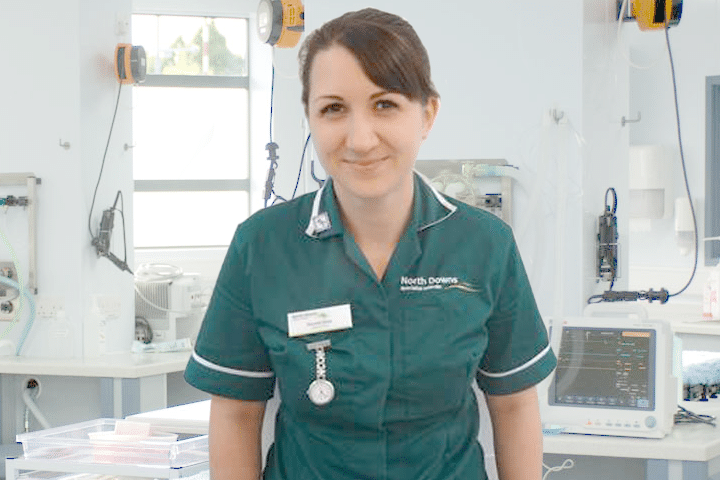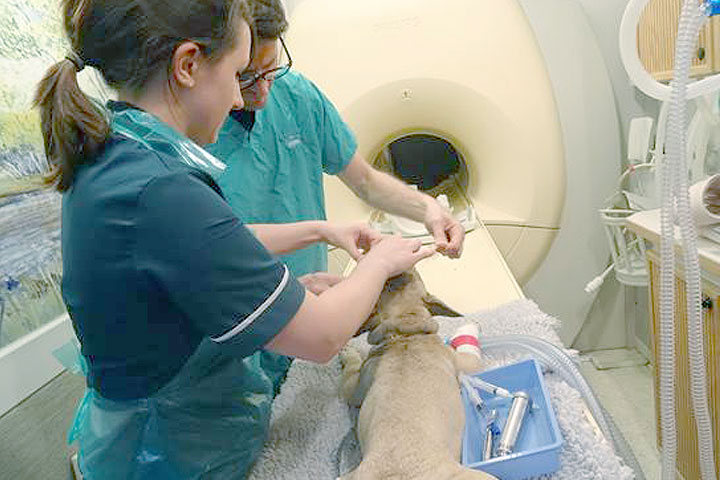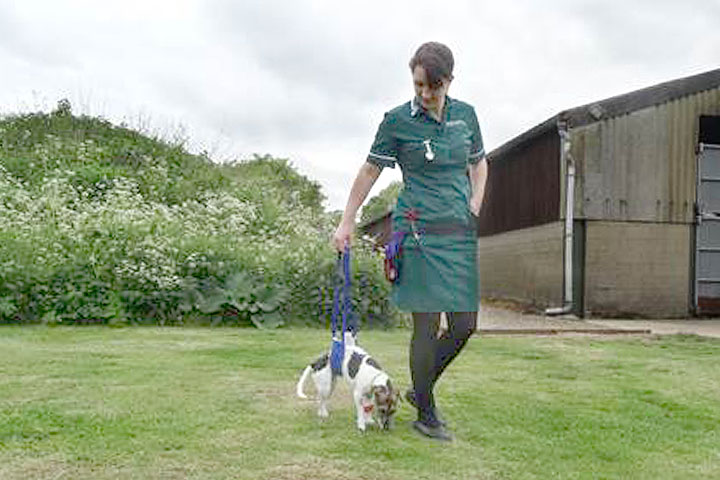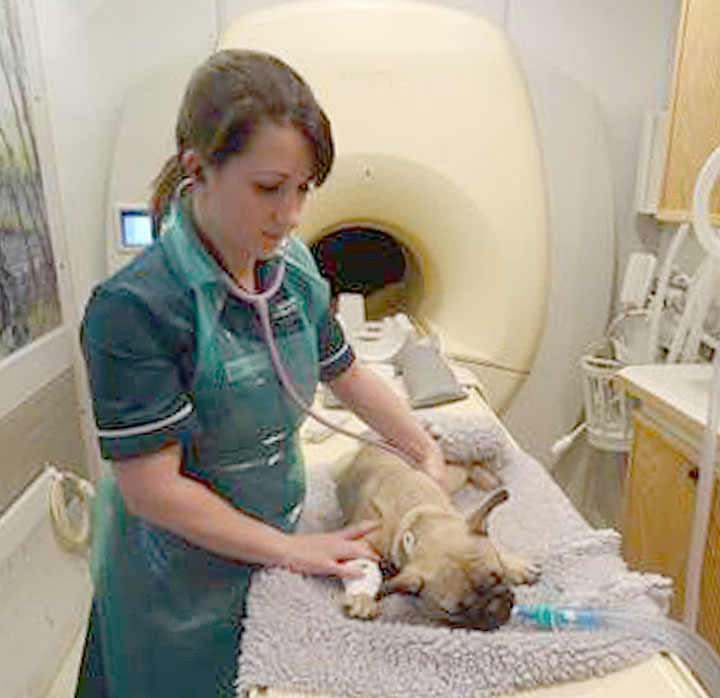
I am a Neurology Nurse at North Downs Specialist Referrals and have worked here since September 2009 after completing a degree in Veterinary Nursing. I have been a Neurology Nurse since July 2013 and I recently completed a Graduate Diploma in professional and clinical veterinary nursing. This is an advanced veterinary nursing diploma for practicing registered veterinary nurses and takes 2 years to complete, requiring many hours of study. This further increased my knowledge in multiple areas of nursing and gave me the inspiration to continue to improve patient care.
The patients I treat have a variety of conditions affecting either their brain or spinal cord. Most commonly I look after seizure patients, those with brain tumours and Granulomatous Meningio-encephalitis (an inflammatory disease of the central nervous system) for which I administer a chemotherapy injection every 3 weeks, which gives me the opportunity to get to know patients and their owners very well. We also see a large number of dogs with spinal cord compressions resulting from disc extrusions (slipped disc’s) and occasionally spinal fractures.
Each working day can be very different from the next, depending on the patients I am nursing and the shift I am working. I will always have another qualified nurse working alongside me to look after the neurology patients and we will have the support of our team of nursing assistants. On an early shift starting at 7.30am, I receive a full handover from the night nurse on all the neurology patients that have been hospitalised overnight. I complete a physical examination to assess improvements or deterioration from the previous day. Vital parameters such as heart rate via auscultation (listening with a stethoscope), peripheral pulses, temperature, respiratory rate and effort, mucous membrane colour and general demeanour of the patient are assessed, along with their mobility. I make clinical notes on their hospitalisation sheets and discuss these with the neurologists during ward rounds approximately an hour into my shift.
The patients are weighed and walked outside by our nursing assistants. Many of the neurology patients have conditions that affect their mobility and I often observe them walking and assist with the post-operative spinal patients, who require a harness or sling. Their mobility can vary significantly over a number of hours. Being able to go outside in the open air and onto the grass often stimulates them and enhances their time as in-patients.
Throughout the day I administer and dispense medications and offer food to the patients, with the help of our nursing assistants who are very adept at getting even the fussiest patient eating. I also perform basic physiotherapy and bladder checks when necessary to ensure spinal patients are urinating. I really enjoy getting to know the patients and they get to know me too and can be quite cheeky! I provide owner updates when requested and also call the owners of patients that have recently been discharged, to see how they are getting on.
The neurologists consult during the day and they will admit patients to be hospitalised. Once the clinicians have explained their condition and requirements, I check their vital parameters and prepare them for diagnostic procedures or surgery by placing intravenous catheters or taking blood samples. I also update their clinical notes during the day. It is essential to communicate with theatre and the diagnostic team to ensure patients are ready for their procedures. At the end of my shift I do a ward round with the nurses on the late shift, specifying each patient’s requirements.
I also work a 10am – 7pm shift and although aspects of the nursing care previously mentioned feature, it primarily consists of monitoring anaesthesia for patients during their diagnostic procedures. The majority of the diagnostic procedures required for the neurology patients involve MRI’s (Magnetic Resonance Imaging) and CSF (Cerebral Spinal Fluid) taps, but we also perform radiography, CT (Computed Tomography) scans, EMG’s (Electromyography) and occasional ultrasounds as necessary. It is my responsibility to record the diagnosis that is made by the radiologists and communicate this to the other neurology nurse. Often patients will be transferred from MRI directly to theatre and I have to ensure all relevant clinical history, including recent blood work and medications, are recorded on the anaesthetic sheet and verbally communicated to the theatre team.
Being a full-time Neurology Nurse comes with a lot of responsibility to provide a productive and efficient service for the neurology department but is a very rewarding job. I love working with the patients, the neurologists and the rest of the NDSR nursing team.



Case Advice or Arranging a Referral
If you are a veterinary professional and would like to discuss a case with one of our team, or require pre-referral advice about a patient, please call 01883 741449. Alternatively, to refer a case, please use the online referral form